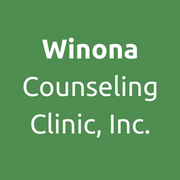What You Need to Know About Alcohol Addiction

Drinking alcohol is often seen as a way to celebrate, relax, or socialize with friends and family. Unfortunately, 15 million Americans each year will be affected by alcohol addiction, a chronic, relapsing disease that often requires alcoholic counseling to overcome. Learning why alcohol is addictive, how to spot warning signs, and where to find treatment can help you or a loved one restore healthy relationships and balance in life.
Why Alcohol Is Addictive
Alcohol is addictive because of the way it interacts with the brain. The chemicals in alcohol change the structure and function in the brain, creating biological and psychological cravings for the substance. These cravings center around dopamine, one of the pleasure chemicals that the brain produces when someone is happy. With alcohol, people experience a surge of dopamine when they drink to feel good or to escape reality. The more their brain associates this dopamine rush with drinking, the more often they have the desire to drink. Eventually, this desire becomes a craving and the need for alcoholic counseling arises.
How to Identify Alcohol Addiction
 There are many symptoms of alcohol addiction, but the biggest ones to watch out for include:
There are many symptoms of alcohol addiction, but the biggest ones to watch out for include:
- A strong, frequent, or consistent urge to drink
- Experiencing withdrawal symptoms such as insomnia, irritability, mental fogginess, anxiety, racing heart, or tremors
- Drinking increasing amounts of alcohol to experience effects—due to building tolerance
- Engaging in risky behaviors during drinking episodes, such as driving or unsafe sex
- Drinking alone or trying to hide it from family, friends, or coworkers
How to Find Help for Addiction
It can be just as difficult to find alcoholic counseling for yourself as it can be to find help for a loved one. This is often due to feelings of shame, guilt, or trauma that are associated with drinking problems. The best treatment option available is family counseling, as families that get involved in treatment tend to see better success rates. Not only does this reduce enabling and provide additional support, but family therapy can also help mend relationships hurt by alcohol abuse and create lasting plans to prevent relapses.
If you or a loved one is struggling with addiction, turn to the compassionate counselors at Winona Counseling Clinic. Their alcoholic counseling team in Winona, MN, is trained in helping families get involved, support each other, and build new futures together without addictions. Call (507) 454-3900 to speak with a member of their team or visit their website for more resources about treating addiction.
About the Business
Have a question? Ask the experts!
Send your question

